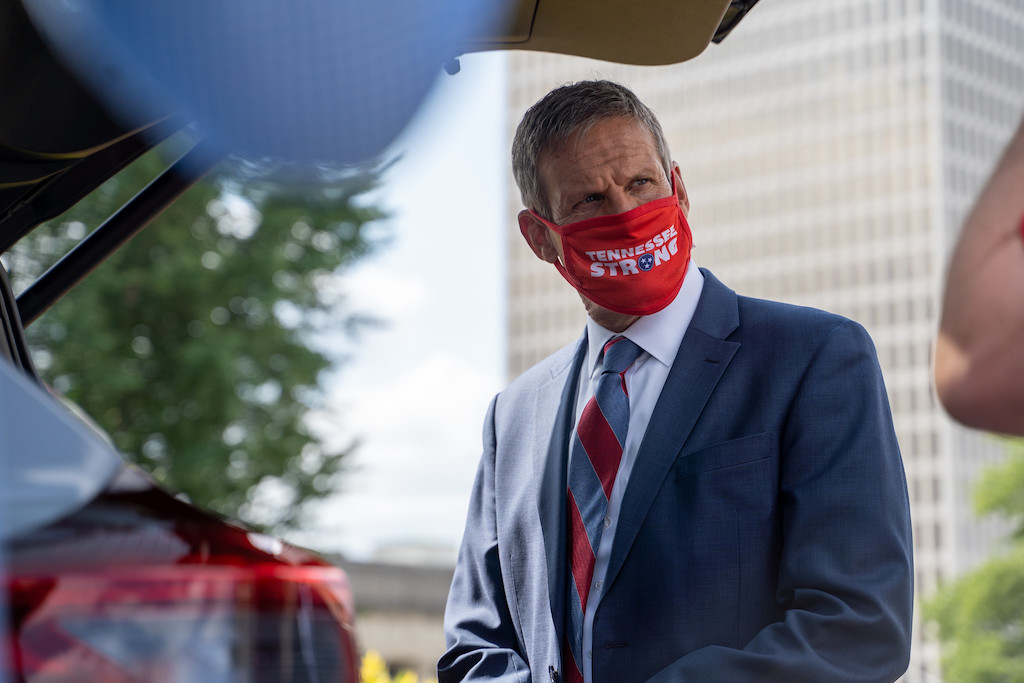
Gov. Bill Lee will stay in quarantine for another week after close contact with a coronavirus case in his security detail and will miss the presidential debate at Belmont University later this week, as well as a Nashville fundraiser for President Donald Trump.
Lee has tested negative for the coronavirus and has no symptoms, but says he’s trying to model good behavior for Tennessee residents, even though on a number of occasions in recent months, he has been photographed not making another choice he’s encouraged — wearing a mask at public gatherings.
“It’s a very serious virus. We have people losing their lives to it everyday in this state,” Lee says. “We understand the seriousness, and I certainly do.”
Lee spoke to reporters by teleconference Tuesday, in the middle of a 14-day quarantine recommended by the Centers for Disease Control and Prevention. He says he plans to stay quarantined until next week describing it as “the responsible choice.” He did not appear on camera.
The press conference came on the same day that the state launched a new TV ad Tuesday to encourage mask wearing. It too frames masks as a responsible choice rather than a requirement. Lee says masks will just have to become a habit since the virus will be around for many more months.
The governor continues to resist calls, even from the White House, for Tennessee to mandate masks statewide. But he says this week his office has been leaning on local mayors in rural communities where the coronavirus is spreading rapidly to require face coverings.
Lee argues more people might wear masks if they understood it doesn’t take perfection to protect others from the virus. That represented a slight shift for the governor.
Previously, when pressed by reporters about occasionally not wearing a mask in public, Lee has said he “felt safe” enough to remove his mask in those situations. But he had a slightly different take on Tuesday. He says those moments captured on camera usually represent just a 10-second break from the mask when someone wants a photo, which doesn’t constitute close contact by current guidelines.
“That might look like an irresponsible move, but I’m trying to be practical and I’m trying to model that for people, to say you can be safe, you can live your life, you can continue to move forward and you can protect the people around you by making wise choices,” Lee says.

